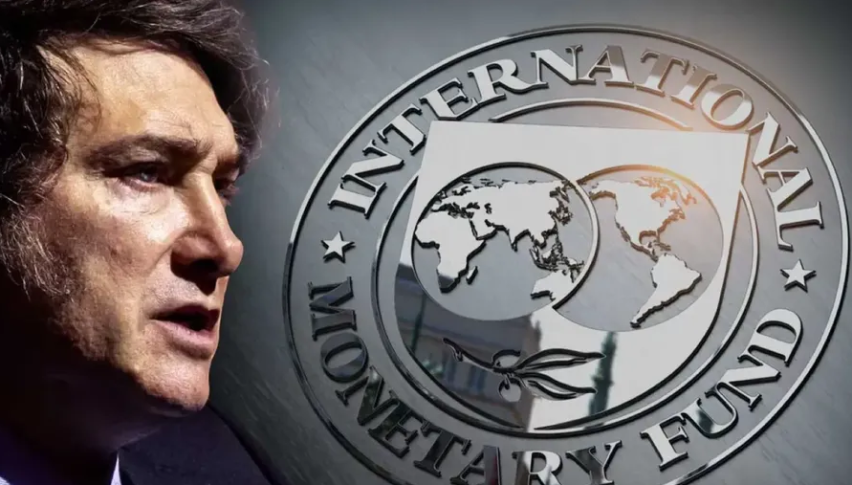Argentina: Bonds Tumble Again as Country Risk Nears 1,500 bps
Argentine stocks are down nearly 50% year-to-date, battered by political uncertainty and dollar sales aimed at shoring up the currency.

Quick overview
- Dollar-denominated sovereign debt in Argentina is reflecting severe investor pessimism following the Central Bank's reserve sales.
- Argentine sovereign bonds have sharply declined, pushing country risk close to 1,500 basis points amid fears over upcoming debt maturities.
- Equities are also suffering, with Argentine stocks down nearly 50% year-to-date due to political uncertainty and currency stabilization efforts.
- Economy Minister Luis Caputo attempted to reassure investors by affirming the government's commitment to its exchange-rate strategy and upcoming debt obligations.
Dollar-denominated sovereign debt is already pricing in the bleakest scenarios, after investors reacted negatively to the Central Bank’s (BCRA) move to sell reserves at the top of the currency band.

Argentine sovereign bonds in dollars fell sharply, pushing country risk close to 1,500 basis points. The intervention by the BCRA, which sold foreign reserves to defend the peso, has heightened investor concerns over upcoming debt maturities.
On Friday, most bonds traded in the red, with the Bonar 2030 leading losses (-1.8%), followed by the Bonar 2041 (-0.6%) and the Bonar 2035 (-0.3%). Among globals, the Global 2038 slipped 0.1%.
The sell-off came on the heels of a disastrous session in which sovereign bonds had plunged as much as 13.4%, driving country risk above 1,400 basis points—a one-year high. Since La Libertad Avanza’s heavy defeat in Buenos Aires’ legislative elections, the index has soared more than 60%.
Equities have not escaped the rout: Argentine stocks are down nearly 50% year-to-date, battered by political uncertainty and dollar sales aimed at shoring up the currency.
After markets closed, Economy Minister Luis Caputo sought to calm investors during an appearance on the Carajo livestream. He reaffirmed that the government will stick to its exchange-rate strategy agreed with the IMF, confirmed that the BCRA would continue intervening at the band’s ceiling, and pledged to meet January’s debt obligations—though he stopped short of explaining where the necessary funds would come from.
Markets have entered a phase of “panic selling,” with political turmoil weighing heavily on asset prices. While investors had expected Congress to overturn the government’s vetoes on university funding and pediatric emergencies, the margin of rejection was larger than anticipated. News that the BCRA started selling at the band’s ceiling has led the market to price in even darker scenarios.
ADRs and the Local Index
Most Argentine ADRs fell in New York, with Grupo Financiero Galicia down 2.7%, Banco Macro 2.4%, and BBVA Argentina 2.2%.
The S&P Merval slipped 0.5% to 1,687,739.83 points, while its dollar-denominated counterpart dropped to 1,083.51 points. Among the steepest losers were Transportadora de Gas del Sur (-4.8%), Bolsas y Mercados Argentinos (-3.3%), and Transener (-3.1%).
- Check out our free forex signals
- Follow the top economic events on FX Leaders economic calendar
- Trade better, discover more Forex Trading Strategies
- Open a FREE Trading Account
- Read our latest reviews on: Avatrade, Exness, HFM and XM